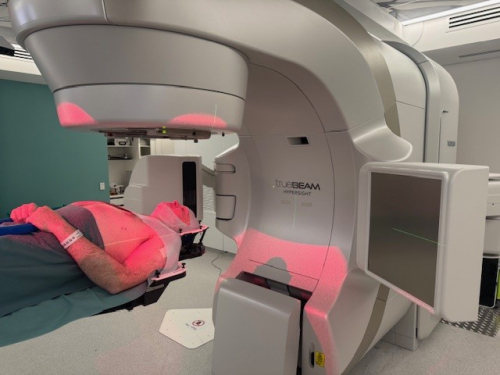The Alfred cuts risks in open heart surgery

New research from The Alfred could nearly halve the number of people who suffer complications with bleeding following open heart and other major surgery.
Tranexamic acid (TXA) reduces the risk of serious bleeding complications by 40 per cent, resulting in fewer blood transfusions and emergency re-operations, according to a global study led by Melbourne’s Alfred Hospital.
Doctors had been concerned about using TXA because of fears that it might increase the risk of heart attack or stroke. But the world-wide study, funded by the Australian and New Zealand College of Anaesthetists (ANZCA) and the NHMRC, found that the drug did not increase thrombosis after open-heart surgery.
“The results were very clear-cut and reassuring,” said Professor Paul Myles, Director of Anaesthesia and Perioperative Medicine at The Alfred and an ANZCA Fellow.
“TXA does not increase thrombosis after open heart surgery. Furthermore, there was strong evidence that TXA nearly halved the risk of serious bleeding complications – meaning less bleeding, fewer blood transfusions and far less need for emergency re-operation following surgery.
“The findings mean that almost every heart surgery patient can now be treated with TXA, and that we can safely use a higher dose than previously. Use of TXA can also be safely expanded to prevent bleeding with other kinds of major surgery, such as knee and hip replacements, trauma surgery and spinal surgery, operations where TXA is not much used at present.”
Currently, each year about 15,000 Australians who have heart surgery (40 per cent of the total) need blood transfusions, and up to 1000 need a second, emergency surgery. “Routine use of TXA can halve both those figures,” Professor Myles said.
The study, which involved 30 hospitals in seven countries, was led by a team at the Alfred Hospital and Monash University in Melbourne. It looked at more than 4,600 people having open-heart surgery over the past 10 years. Half the patients were given TXA and the other half were given a placebo (a fake medication).
The results have been published in the New England Journal of Medicine and were presented by Professor Myles at a national scientific meeting of anaesthesiologists in Chicago, USA.
Each year, more than half a million people world-wide undergo open heart surgery, 25,000 of them in Australia.


